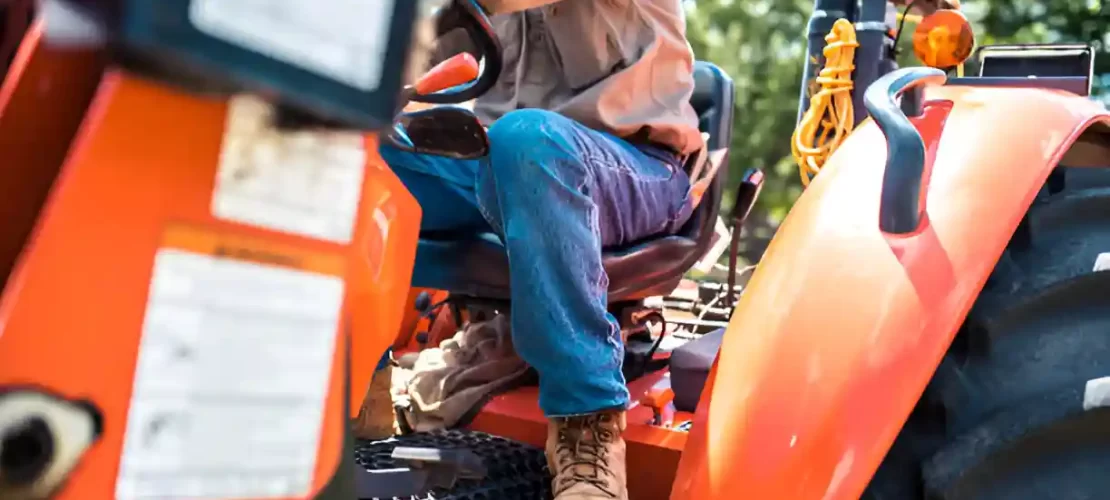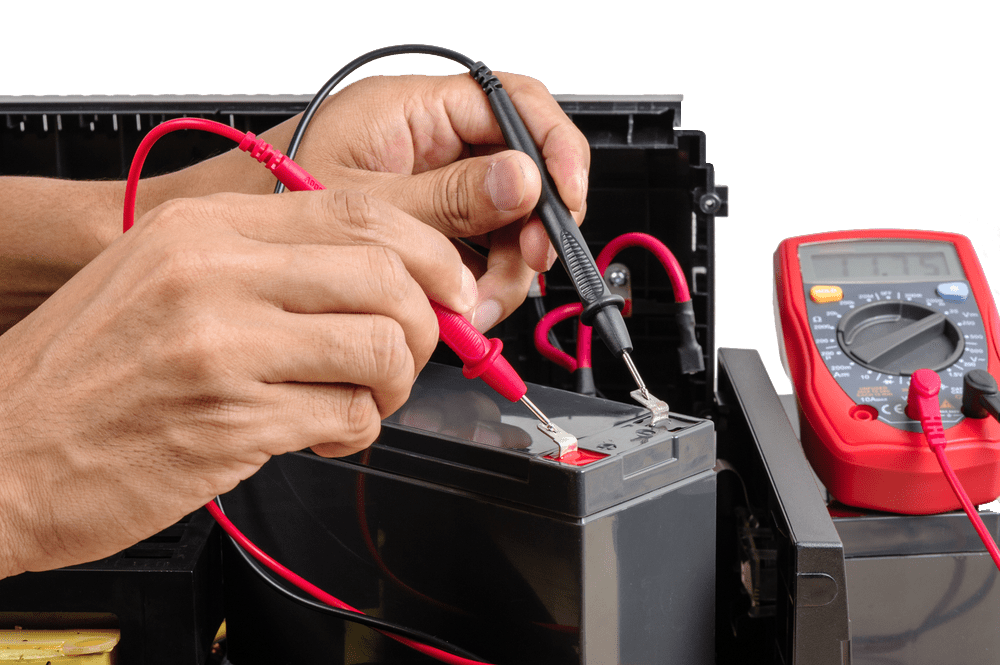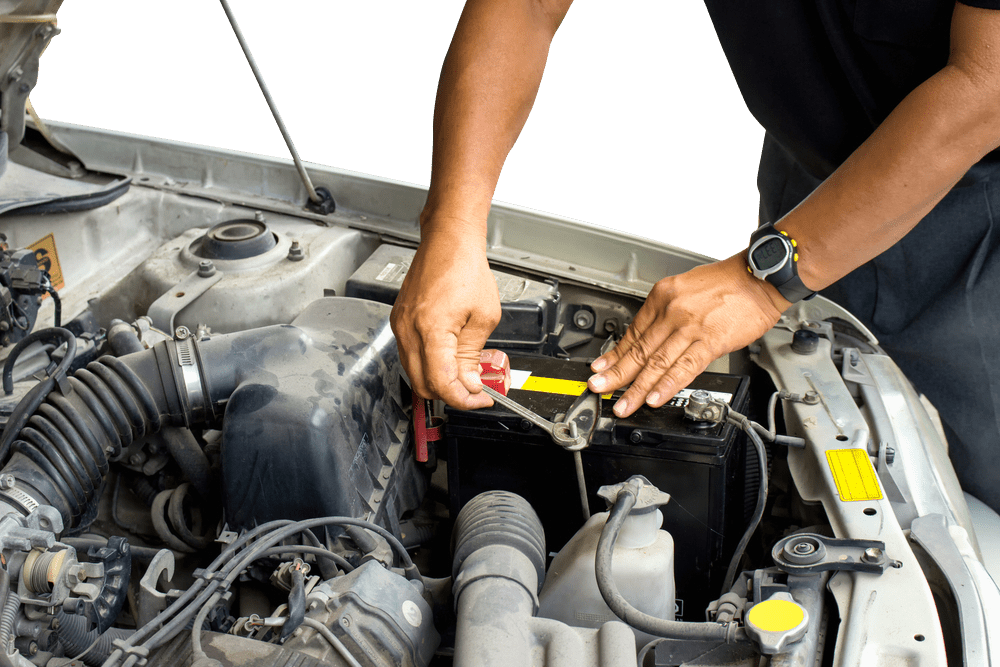- 16 Apr 2025
What kind of battery does a tractor take?

When it comes to powering agricultural machinery, understanding what kind of battery does a tractor take is crucial for farmers and equipment operators. Tractors, being the workhorses of farms across Sydney and beyond, rely on robust power sources to start their engines and operate essential electrical components. The right tractor battery ensures reliable performance in various weather conditions and demanding work environments. This comprehensive guide explores everything you need to know about tractor batteries, from their types and specifications to maintenance tips and replacement considerations.
The Importance of Choosing the Right Battery for Your Tractor
Before diving into specific battery types, it’s essential to understand why selecting the appropriate battery for your tractor matters. Unlike standard automotive batteries, a tractor battery must withstand vibration, extreme temperatures, and provide sufficient cranking power to start large diesel engines. In Sydney’s diverse climate, from hot summers to cooler winters, having the correct battery installed in your tractor can make the difference between a productive workday and frustrating downtime.
Types of Batteries a Tractor Can Take
Conventional Lead-Acid Batteries
The most common type of battery that a tractor take is the conventional lead-acid battery. These batteries have been the industry standard for decades due to their reliability and affordability. Lead-acid batteries contain lead plates submerged in sulfuric acid, creating a chemical reaction that produces electricity.
For tractors operating in Sydney and surrounding agricultural regions, conventional lead-acid batteries provide dependable power, especially in moderate climate conditions. However, they require regular maintenance, including checking electrolyte levels and topping up with distilled water when necessary.

Maintenance-Free Batteries
As technology advances, maintenance-free batteries have become increasingly popular choices for modern tractors. These sealed lead-acid batteries eliminate the need for regular water additions, making them convenient options for busy farmers.
The maintenance-free tractor battery typically features calcium-added plates that reduce water consumption and self-discharge rates. For Sydney farmers with multiple pieces of equipment to maintain, these batteries offer a practical solution that reduces maintenance time while providing reliable starting power.
Absorbed Glass Mat (AGM) Batteries
For high-performance tractors and those operating in demanding conditions, AGM batteries represent a premium option. The battery technology involves electrolyte absorbed in fiberglass mats, making them spill-proof and highly resistant to vibration.
An AGM tractor battery delivers superior cranking performance in cold weather, making them excellent choices for early morning starts during Sydney’s winter months. While more expensive than conventional options, their longer lifespan and enhanced reliability often justify the investment for commercial operations.
Gel Cell Batteries
Another specialized option that a tractor take is the gel cell battery. These batteries contain silica that turns the electrolyte into a gel-like substance, preventing spillage and reducing evaporation.
Gel batteries excel in extreme temperature environments and can be mounted in various positions without compromising performance. For specialty applications or tractors used in particularly harsh conditions around Sydney, gel batteries provide exceptional durability and consistent power delivery.
Battery Specifications for Different Tractor Types
Small Garden Tractors
Small garden tractors and compact utility tractors typically take 12-volt batteries with a Cold Cranking Amp (CCA) rating between 300-400. These smaller machines don’t require the massive starting power of their larger counterparts.
In Sydney’s residential areas, where smaller tractors are common for property maintenance, these more modest batteries provide sufficient power while remaining economical. The battery size group typically falls in the U1 or Group 22 range, with physical dimensions designed to fit the limited battery compartments of compact machinery.
Medium-Sized Agricultural Tractors
Mid-range agricultural tractors commonly used across Sydney’s farming regions generally require 12-volt batteries with CCA ratings of 650-850. These tractors take batteries that must deliver reliable starting power for engines in the 50-100 horsepower range.
The battery group sizes for medium tractors often fall into the 24, 27, or 31 categories, with physical dimensions and terminal configurations varying by manufacturer. Many farmers in this segment opt for dual-purpose batteries that provide both strong cranking amps and decent reserve capacity for running accessories.
Large Commercial Tractors
Heavy-duty commercial tractors used for large-scale farming operations take batteries with significant power capabilities. These machines typically require 12-volt batteries with CCA ratings exceeding 1000, or dual 12-volt batteries connected to create a 24-volt system.
For extensive agricultural operations around Sydney, these high-capacity batteries ensure consistent performance even under heavy loads. Large tractors often take Group 4D or 8D batteries, which are substantially bigger and heavier than those used in smaller equipment.
Understanding Battery Ratings Important for Tractors
Cold Cranking Amps (CCA)
When determining what kind of battery does a tractor take, the Cold Cranking Amps rating is perhaps the most critical specification. CCA measures the battery’s ability to start an engine in cold temperatures, indicating how many amps the battery can deliver at 0°F (-18°C) for 30 seconds while maintaining a minimum voltage.
For Sydney tractors, where winter temperatures rarely drop below freezing, a moderately high CCA rating is still important for reliable starting, especially for diesel engines that require more cranking power than gasoline engines.
Reserve Capacity (RC)
Reserve Capacity indicates how long a fully charged battery can run essential systems if the alternator fails. This rating tells you how many minutes a battery can deliver 25 amps while maintaining a voltage above 10.5 volts.
A tractor battery with good reserve capacity provides peace of mind for farmers working in remote areas around Sydney, ensuring they won’t be stranded due to an alternator failure.
Amp-Hour Rating (Ah)
The Amp-Hour rating measures a battery’s total energy storage capacity. For example, a 100Ah battery can theoretically provide 5 amps for 20 hours or 100 amps for 1 hour (though in practice, faster discharge rates reduce total available capacity).
This specification is particularly important for tractors that may run electrical implements or have significant accessory loads. Sydney farmers who use tractors with multiple electrical components should prioritize batteries with higher Ah ratings.
Factors Affecting What Battery a Tractor Takes
Manufacturer Specifications
The primary consideration when determining what kind of battery does a tractor take is the manufacturer’s specifications. Tractor manufacturers design their electrical systems for specific battery types and ratings, and deviating from these recommendations can lead to performance issues or electrical system damage.
Sydney tractor owners should consult their owner’s manual or dealer for the exact battery specifications recommended for their specific model.
Climate Considerations
Sydney’s climate, characterized by hot summers and mild winters, influences battery selection. In warmer climates, batteries tend to have shorter lifespans due to increased water evaporation and chemical reaction rates.
For tractors operating in Sydney’s warmer regions, maintenance-free or AGM batteries often provide better longevity compared to conventional lead-acid options. These battery types are better equipped to handle the accelerated chemical breakdown that occurs in higher temperatures.
Operational Requirements
How a tractor is used significantly impacts the battery requirements. Tractors used for occasional light duties take different batteries than those used for continuous heavy-duty commercial operations.
Sydney farmers should consider their specific operational needs, including:
- Average engine starting frequency
- Duration of operation
- Electrical accessory load
- Periods of inactivity between uses
Each of these factors influences the ideal battery specifications for optimal performance and longevity.
Installation and Maintenance of Tractor Batteries
Proper Installation Procedures
Installing the correct battery does a tractor take involves more than simply connecting terminals. Proper installation includes:
- Ensuring the battery is securely mounted to prevent movement and vibration damage
- Cleaning terminals and connections to ensure good electrical contact
- Applying a terminal protectant to prevent corrosion
- Verifying proper polarity connections (positive to positive, negative to negative)
- Checking that vent tubes (if present) are properly positioned
For Sydney tractor owners performing DIY battery replacement, following these steps helps ensure reliable performance and prevents potential electrical system issues.
Maintenance Requirements
Different battery types that a tractor takes require varying levels of maintenance:
Conventional Lead-Acid Batteries:
- Regular checking of electrolyte levels
- Topping up with distilled water when necessary
- Cleaning terminals to remove corrosion
- Periodic charging during extended storage periods
Maintenance-Free and AGM Batteries:
- Periodic terminal cleaning
- Checking for proper charging system operation
- Maintaining appropriate charge levels during storage
In Sydney’s climate, battery maintenance is particularly important during the summer months when higher temperatures accelerate water loss and chemical reactions within batteries.
Extending Battery Life
To maximize the lifespan of any tractor battery in Sydney conditions:
- Maintain proper charge levels – Avoid deep discharges whenever possible
- Keep connections clean and tight – Corrosion increases resistance and reduces efficiency
- Protect from extreme temperatures – When possible, store tractors in shaded or covered areas
- Use a battery maintainer during seasonal storage periods
- Ensure the charging system is functioning properly – Overcharging can be as damaging as undercharging
With proper care, a quality tractor battery should last 3-5 years in typical Sydney operating conditions.
Common Tractor Battery Issues and Solutions
Difficulty Starting
When a tractor struggles to start, the battery is often the first suspect. In Sydney tractors, starting difficulties may indicate:
- Insufficient CCA rating for the engine size
- Battery age and degradation
- Loose or corroded connections
- Parasitic drains depleting the battery during idle periods
Testing the battery’s voltage and load capacity can help diagnose whether the battery itself needs replacement or if another electrical system component is causing the problem.
Short Battery Life
Sydney tractor owners sometimes experience shorter-than-expected battery life. Common causes include:
- Extreme temperature exposure
- Improper charging system operation (overcharging or undercharging)
- Frequent deep cycling
- Using an undersized battery for the application
- Excessive vibration causes internal damage
Addressing the underlying cause, rather than simply replacing the battery, can prevent recurring premature failures.
Sulfation
Battery sulfation—the buildup of lead sulfate crystals on battery plates—is a common issue, especially in Sydney’s warmer regions where batteries may sit unused for periods during the off-season. Sulfation reduces a battery’s capacity and ability to accept a charge.
Regular use, proper maintenance, and occasional desulfation charging can help prevent and sometimes reverse this condition, extending the useful life of a tractor battery.
Buying a Replacement Battery for Your Tractor
Where to Purchase Tractor Batteries in Sydney
Sydney offers numerous options for purchasing a tractor battery:
- Agricultural equipment dealers who understand what kind of battery does a tractor take for specific models
- Automotive and battery specialty stores with agricultural battery selections
- Farm supply retailers carrying common tractor battery sizes
- Online retailers offering competitive pricing and home delivery
For specialized tractors or unusual battery requirements, consulting with authorized dealers in Sydney is often the safest approach to ensure proper fit and specifications.
Cost Considerations
Tractor battery prices in Sydney vary widely based on:
- Battery type (conventional lead-acid vs. AGM or gel)
- Size and capacity
- Brand reputation
- Warranty terms
- Additional features (such as enhanced vibration resistance)
While budget constraints are always a consideration, investing in a quality battery appropriate for your tractor’s specifications typically provides better value through improved reliability and longer service life.
Warranty and Support
When purchasing a new tractor battery in Sydney, warranty terms should be a significant consideration. Most quality batteries come with pro-rated warranties ranging from one to five years, with premium options offering longer coverage periods.
Local suppliers often provide value-added services such as:
- Free battery testing
- Installation assistance
- Old battery disposal
- Warranty processing if issues arise
These support services can be particularly valuable for Sydney farmers operating in remote areas.
Environmental Considerations and Recycling
Proper Disposal of Old Batteries
Tractor batteries contain hazardous materials, including lead and acid, making proper disposal essential. In Sydney, it’s not only environmentally responsible but legally required to recycle old batteries rather than disposing of them in general waste.
Most retailers and battery specialists in Sydney offer free recycling services when purchasing a replacement battery. Additionally, designated recycling centers accept old batteries, ensuring the toxic components are properly processed.
Recycling Process
When a tractor battery reaches the end of its useful life, the recycling process typically involves:
- Separating the plastic casing
- Recovering the lead components
- Neutralizing and processing the acid
- Reusing materials in new battery production
This recycling cycle helps reduce the environmental impact of battery production and keeps hazardous materials out of landfills around Sydney.
Emerging Battery Technologies for Tractors
Lithium-Ion Batteries
While still relatively uncommon in conventional tractors, lithium-ion battery technology is beginning to appear in specialized applications and electric tractors. These batteries offer:
- Significantly lighter weight
- Faster charging capabilities
- Longer cycle life
- Improved cold-weather performance
For Sydney’s agricultural sector, lithium-ion batteries represent a potential future direction, particularly as electric and hybrid tractors become more prevalent in the market.
Dual-Purpose Systems
Some modern tractors are adopting dual-battery systems that combine different battery types to leverage their respective advantages. These systems might use:
- A high-CCA conventional battery for starting power
- An AGM or lithium battery for running electronics and accessories
- Capacitor-based systems for supplemental starting assistance
These hybrid approaches potentially offer improved reliability and performance for specialized applications around Sydney.
Conclusion
Understanding what kind of battery does a tractor take is essential for ensuring the reliable performance and longevity of your agricultural equipment. From conventional lead-acid batteries to advanced AGM and emerging lithium technologies, the options available to Sydney farmers continue to evolve.
By considering your specific tractor model, operational requirements, and local climate conditions, you can select the optimal battery that balances performance, durability, and value. Remember that proper installation, regular maintenance, and appropriate charging practices all contribute to maximizing battery life.
For Sydney’s agricultural community, investing in the right tractor battery and maintaining it properly ensures that when it’s time to work, your equipment starts reliably and performs at its best—keeping your operation productive throughout the seasons.
Whether you’re operating a small garden tractor in suburban Sydney or managing a fleet of commercial agricultural machinery, the right battery choice is a fundamental component of equipment reliability and operational efficiency.











